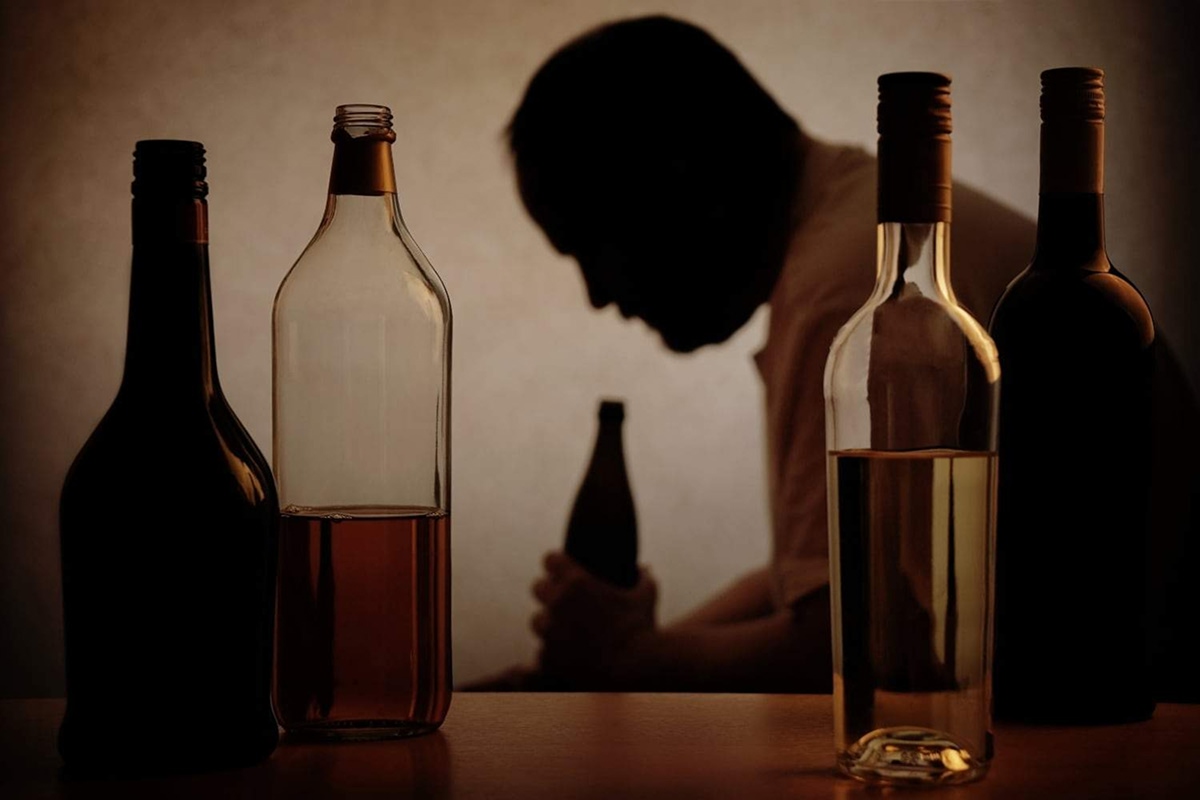Key Takeaways
- Dark liquor contains more congeners, leading to higher toxicity and increased addiction risk.
- Both dark liquor and light liquor can cause liver and kidney damage when consumed excessively.
- 12 South Recovery offers effective addiction treatment to help individuals heal physically and emotionally from alcohol abuse.
When “Just One Drink” Hits Harder: The Truth About Dark Liquor and Addiction
For many people, a glass of whiskey or rum feels like a simple way to relax. But dark liquors contain stronger compounds that affect your body more harshly than light spirits. These drinks can cause faster intoxication, worse hangovers, and greater risks of liver and kidney damage. The higher alcohol content and toxins also make alcohol addiction more likely. Knowing these risks can help you make safer choices about drinking. If you’re struggling with alcohol use, 12 South Recovery is here to help you heal and start fresh.

What Is Dark Liquor?
Dark liquor refers to spirits that have been aged longer or made with ingredients that give them a deep color. These include:
- Whiskey
- Brandy
- Dark rum
- Cognac
- Bourbon
They’re typically aged in charred barrels, which introduce flavor compounds called congeners, chemical byproducts of fermentation and aging. These compounds give dark liquor its bold taste and rich aroma, but they also increase its toxicity.
Light or clear liquors (like vodka, gin, or white rum) are distilled multiple times, reducing congeners and resulting in a cleaner, lighter profile.
But fewer congeners don’t always mean “safe.” Even clear liquor can lead to alcohol abuse, dependency, and organ damage if consumed regularly.
What Does Dark Liquor Do to Your Body?
Dark liquors have higher levels of congeners such as tannins, acetone, and methanol. These compounds intensify hangovers, worsen inflammation, and heighten strain on your liver and kidneys. Here’s how:
- Faster intoxication: Dark liquor is often higher in alcohol content, making it easier to reach dangerous blood alcohol levels.
- Stronger toxins: The body breaks down congeners less efficiently, leading to higher levels of harmful byproducts.
- Greater inflammation: These toxins can cause oxidative stress, damaging cells in the liver and kidneys.
- Slower recovery: The body spends more time metabolizing these chemicals, extending hangovers and internal strain.
At 12 South Recovery, clients struggling with the long-term effects of alcohol addiction often experience fatigue, insomnia, and digestive problems, signs that the body is working overtime to process alcohol toxins.
Is Dark Liquor Healthier Than Light Liquor?
Some believe dark liquor is “better” because it’s aged or “more natural.” However, research shows the opposite.
Dark liquors contain more congeners, which increase hangover severity and toxicity. Light liquors, while cleaner, still contain ethanol, a powerful depressant that affects mood, memory, and coordination.
| Feature | Dark Liquor | Light Liquor |
| Examples | Whiskey, Brandy, Dark Rum | Vodka, Gin, White Rum |
| Congener Content | High | Low |
| Color Source | Aging in barrels | Distillation purity |
| Hangover Severity | Stronger | Milder |
| Toxin Levels | Higher | Lower |
| Flavor | Bold, rich | Clean, crisp |
In other words, neither is “healthy”, but dark liquor carries a higher risk for liver damage, kidney damage, and long-term alcohol abuse.
Why Do People Stay Away from Dark Liquor?
There are a few common reasons:
- Harsher hangovers: High congener levels make symptoms like nausea, headaches, and dehydration worse.
- Stronger intoxication: It’s easier to misjudge how much you’re drinking.
- Taste intensity: The heavier flavor can be harder to handle for some.
- Increased addiction risk: Stronger liquors often lead to faster tolerance and dependence.
At 12 South Recovery, our clients often share how switching from lighter alcohols to dark liquor escalated their drinking habits quickly. Because dark liquor produces a deeper “buzz,” it’s easy to chase that feeling, leading to substance abuse before you even realize it.
What Type of Liquor Gives the Worst Hangover?
While all alcohol can cause a hangover, dark liquors like bourbon, brandy, and whiskey consistently rank highest for hangover severity. This is because they contain high levels of congeners, which intensify dehydration and inflammation.
The worst hangovers typically involve:
- Dehydration from alcohol’s diuretic effect
- Electrolyte imbalance due to excessive fluid loss
- Inflammation from toxins
- Poor sleep caused by disrupted REM cycles
Your body struggles to break down these toxins, leaving you drained and irritable. At 12 South Recovery, many clients report that even small amounts of dark liquor caused significant after-effects, early warning signs of alcohol dependence.
What Destroys the Liver the Most?
Ethanol, the main ingredient in all alcoholic drinks, is a direct toxin to liver cells. But dark liquors worsen the impact due to their higher concentration of congeners and impurities.
Consistent heavy drinking, regardless of type, causes fatty liver disease, inflammation (hepatitis), and eventually cirrhosis, irreversible scarring of the liver. However, dark liquors like whiskey or rum accelerate this process.
What Are the First Signs of Liver Damage from Alcohol?
Early warning signs include:
- Abdominal discomfort or swelling
- Yellowing of the skin or eyes (jaundice)
- Fatigue
- Nausea or vomiting
- Dark urine
These signs mean your liver is struggling to filter toxins. At 12 South Recovery, our clinical team helps clients recognize these symptoms and begin alcohol treatment before lasting damage occurs.
Will My Liver Heal If I Quit Drinking?
Yes, but timing matters. If damage is caught early, the liver can regenerate healthy cells. When you stop drinking, your liver begins detoxifying naturally and gradually reduces inflammation.
However, advanced cirrhosis cannot be reversed. The sooner you seek treatment for alcohol addiction at 12 South Recovery, the better your body can heal and restore normal function.
What Are the First Signs of Kidney Damage from Alcohol?
Alcohol puts significant strain on the kidneys by dehydrating the body and disrupting fluid balance. Signs of kidney damage include:
- Swelling in hands, feet, or ankles
- Changes in urination (frequency or color)
- Fatigue
- Shortness of breath
- Confusion or nausea
When the kidneys can’t filter toxins efficiently, harmful substances build up in your bloodstream, increasing your risk of other health issues.
Will My Kidney Heal If I Quit Drinking?
If damage is mild, yes. The kidneys can recover once alcohol use stops and hydration improves. Medical support, such as supervised detox at 12 South Recovery, can help stabilize your body and promote healing.
However, chronic alcohol abuse may cause permanent kidney impairment. That’s why early addiction treatment and support are vital to long-term health.
Why Stronger Alcohol Increases Addiction Risk
Typically, dark liquors contain higher alcohol concentrations (some over 40%). Since higher alcohol means:
- You get drunk faster and build tolerance more quickly.
- More dopamine release and an addictive cycle develop.
- You have more severe withdrawal symptoms once you stop.
This cycle rapidly creates dependency, far more easily than lighter drinks. At 12 South Recovery we have a medical detox and therapeutic options to safely and effectively assist in stopping the cycle.
Treatment for Alcohol Addiction at 12 South Recovery
At 12 South Recovery, treatment is personal, supportive, and focused on uncovering the root causes of addiction. We help you rebuild purpose and direction in your life.
Our alcohol treatment options include:
- Medical detox: Safe withdrawal management
- Residential treatment: 24-hour care in a supportive environment
- Partial Hospitalization Program (PHP): Structured day treatment
- Intensive Outpatient Program (IOP): Flexible therapy while maintaining daily responsibilities
- Continuing care and alumni programs: Long-term support after treatment
Our therapies include CBT, DBT, EMDR, individual and group sessions, holistic approaches, adventure therapy, and relapse prevention planning. Each client receives care centered on personal growth and emotional healing.
Get Alcohol Addiction Treatment at 12 South Recovery
Dark liquor may seem harmless, but its higher alcohol content and toxins can quickly lead to alcohol addiction and organ damage. The longer you drink, the more strain it puts on your liver and kidneys, increasing long-term health risks. If you’re struggling to cut back or stop drinking, professional help can make all the difference. At 12 South Recovery in Lake Forest, California, we provide safe detox, therapy, and ongoing support to help you rebuild your life. Call 12 South Recovery today to start your recovery and take control of your health.































